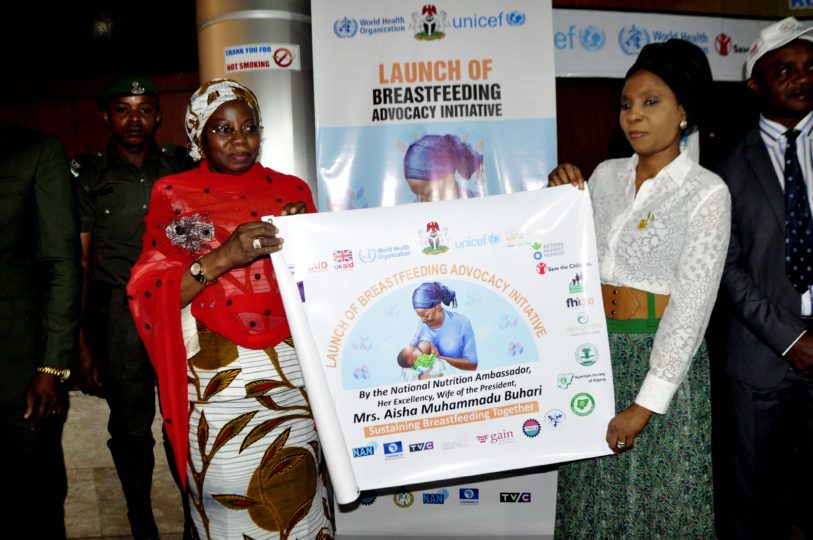Wife of the President, Aisha Buhari, has formally launched the national Breastfeeding Advocacy Initiative in efforts to bolster the Abuja Breastfeeding Declaration reached last June to make breastfeeding a priority.
The launch—simultaneous in two other countries after a global launch last Thursday—also flagged off the World Breastfeeding Week to promote, protect breastfeeding and adequate child feeding practice.
“Mothers can’t do it alone,” said Buhari, who is also the National Nutrition Ambassador. “I have advocated to make it one of our country’s priorities … by investing in progammes and policies that foster enabling environment for breastfeeding women.”
She called for employers to set up breastfeeding rooms, day care centres and flexible hours to enable nursing mothers continue uninterrupted nursing for infants even in the workplace.
“Many mothers want to breastfeed for longer than they currently do, and these policies will help them do it,” said Buhari.
Only around 17 in every 100 children are fed exclusively on breast milk for the first six months of life. The rates have not increased in the last 20 years, placing Nigeria off track to meet a 50% target by 2025 in its National Strategic Plan of Action on Nutrition.
Health minister Isaac Adewole said breastfeeding is proven to prevent malnutrition, insisting the campaign is an urgent call for the world to reap its benefit as a first natural immunisation.
The Abuja Breastfeeding Declaration, reached after a Lancet Series last on breastfeeding, calls for disseminating accurate information of value of breastfeeding, fostering positive social attitudes, demonstrating political will, regulating the breastmilk substitute industry, and scaling up interventions amongst other priorities.
Adewole said the campaign will also focus on funding investment and the cost of not breastfeeding—for a child, a woman, a family and the nation.
Christopher Ugboko, head of gender, adolescent and elderly division at the federal health ministry, said documentation show children who don’t get breastfeed are more likely to take ill.
“When a child is sick, the mother—if she works—may not even go to work and sometimes the father, depending on the severity of the illness. These are costs on the country. She won’t contribute her quota the entire period the child is sick, to national development, and sometimes the father too.
If you put all that cost together, it is a lot. And they are saying if you just invest a million [naira] in our children, you are going to get eleven million simply by doing exclusive breastfeeding.”




